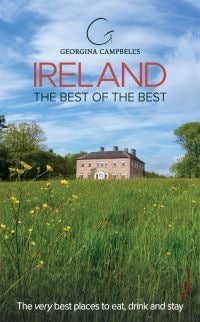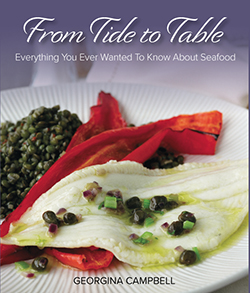Insider View - Green Tourism
 The other day found me eating a large meringue before going to lie on my bed, as you do when overwhelmed by a large work-load. Yes, business is very slow: this country has so many bedrooms now. For premises with a large staff to maintain, it must be tough. For those like us who rely on, and now can’t afford, ancillary staff, the work still has to be done.
The other day found me eating a large meringue before going to lie on my bed, as you do when overwhelmed by a large work-load. Yes, business is very slow: this country has so many bedrooms now. For premises with a large staff to maintain, it must be tough. For those like us who rely on, and now can’t afford, ancillary staff, the work still has to be done.
Never mind; there’s a lot of positivity round here. In our local town of Clones, once referred to in the most disparaging terms by Gay Byrne, a new state-of-the-art library opened last year, a sports complex has recently been built and the rebirth of the Ulster Canal has been announced. It’s all part of a regeneration of a long neglected area of the border.
The film maker Neil Jordan once said that he measured everything by what happened in Clones, so the rest of the country may do worse than look our way.
So how to make Clones as desirable a destination as, say, Kilkenny? One way it could be done is to capitalise on our inclusion in the Green Box area. I am a little bewildered by Green Box, with its EU Flower Awards, but applaud its aims of sustainable tourism, if there can be such a thing. Should we not all just stay at home? For the ecologically-minded there is a publication Ecoscape by Catherine Mack which, according to their website, lists places “that don’t get into the guidebooks” Why not? Is there something about them that only the cycling fraternity is going to like? Is not it possible to be green yet love luxury? The matter is very complex but has to be addressed.
I love going to one of those hotels where they have a notice in the bathroom asking you to recycle your towels and try to resist the cynical response that they are just cutting down on their laundry bills. It makes good sense to re-use towels but the issue of who is and who is not green is fraught with contradiction. Trawling an eco-tourism website I saw a photograph of a featured café in southern England and read their menu. There was an item that read “locally produced bacon and sausages” but the other dishes on offer included ham with pineapple, mozzarella cheese, capers and olives. Imagine the air miles for that lot.
Most well-intentioned people these days try to do their best for Mother Earth – where it suits them. We recycle where we can, burn our own sustainable fuels (we are lucky to own woods), use low-energy lighting, grow fruit and vegetables organically, keep pigs and sheep and poultry. But we live in a large old house that cannot be converted into environmentally friendly ways without huge expense and if we are only going to serve food that is locally grown there should be no orange juice for breakfast, no oils for cooking, no wines or spirits. Obviously our intentions are good but could do better.
Alistair Sawday’s Green Guide features a few places in Ireland that tick the right boxes, environmentally. Mostly they seem to do what we do but have reed beds and are painted with organic paint. One of them brings the wood to the house on the back of a donkey. “This is the near side of lunacy,” my husband commented. One house is commended for having a Fatstripper in the kitchen, a device that removes the fat from the washing up water. Anxious to buy one, I Googled Fatstripper but could only trace it as a weight-loss tablet, so wait to be enlightened. Worst of all is a host who, at breakfast, regales you with his environmental credentials. Pass the ear plugs, please.
I noticed, too, that one of the hosts admitted that they were not signed up members of any organic movement – “too much paperwork, too expensive” and here is the rub. We want to be green but we don’t want to submit to more inspections and payments and bureaucracy. Nor do we want the dead hand of uniformity over the land. I understand that there needs to be a link between those who do their best to deliver a green product and those who wish to avail of it, but there is another way to encourage it.
This involves building up a network of local growers, artisan food producers and craftspeople. It means spending money on training. This has been happening to good effect around the Organic Centre in Rosinver in Co. Leitrim. A good place to start in this area might be the reopening of the old country market in the Butteryard in Clones. Monaghan has some of the best farmers in the country and a thriving market has so many fringe benefits for a community. We could even ask Gay Byrne to the opening.
Together with her husband Johnny, Lucy Madden runs their magnificent 18th century mansion, Hilton Park, Clones, Co Monaghan as a country house which is open to private guests, groups, small weddings and conferences. The restored formal gardens are also open by arrangement. Lucy is a keen organic gardener and also a member of the Irish Food Writers Guild.
 .
.






There are currently no comments
Leave a comment
Not a member? Register for your free membership now!
Or leave a comment by logging in with: